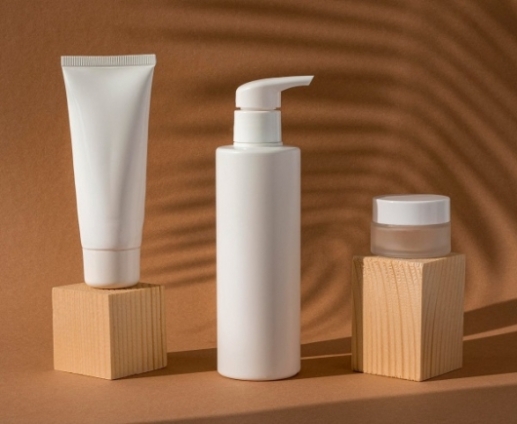More than a third of the country’s population are bleaching their skin, posing a threat to their health.
This is contained in a World Health Organisation (WHO) Africa Region report which found that 39 out of 100 hundred Ghanaians are generally involved in skin bleaching and the widespread use of skin-lightening products is the cause of the rising figures in skin bleaching in the country.
The prevalence of skin bleaching in other African countries ranges from 25 per cent of the population in Mali to 77 per cent in Nigeria, with other countries reporting intermediate rates such as 31.15 per cent in Zimbabwe; 32 per cent in South Africa; 50 per cent in Senegal and 66 per cent in Congo-Brazzaville.
This was in the November 2023 analytical fact sheet of the WHO African Region and the Integrated African Health Observatory (iAHO) report released in Accra.
The report said in Ghana, data showed that 40.4 per cent of study participants in Kumasi and 50.3 per cent in Accra reported either current or past use of skin-bleaching products.
What is skin bleaching? The report described skin bleaching, also known as skin lightening, skin toning and skin whitening, as a global cosmetic practice to achieve a lighter skin tone. It is often driven by cosmetic desires rooted in deep historical, economic, socio-cultural and psychosocial factors.
It involves the use of topical products containing corticosteroids, hydroquinone, mercury, or other agents to lighten the skin. The use of potentially harmful agents such as mercury is common in Africa and Asia.
The WHO said a recent meta-analysis revealed a global prevalence of skin bleaching of 27.1 per cent in Africa and around 25 to 80 per cent of African women regularly used skin-whitening products.
It said data from meta-analysis and meta-regression analysis of 68 studies showed that people aged 30 years and under had the highest prevalence of skin bleaching at 55.9 per cent, followed by those aged 31-49 years at 25.9 per cent.
It described skin bleaching as a global public health problem that needed urgent attention, pointing out that strong regulatory actions were required to ban the importation of harmful skin bleaching products.
Commenting on the issue of skin bleaching in a message to The Mirror, the WHO Country Representative to Ghana, Professor Francis Kasolo, said “we have recognised the health threats of skin bleaching. Therefore, by this analytical fact sheet, we are making efforts to draw attention to this and create awareness among the public to control the practice of skin bleaching in Ghana and Africa as a whole”.
Effects on health The report said that skin bleaching had been associated with several adverse health effects such as dermatitis, steroid acne, discolouration, changes in skin thickness, inflammatory disorders and conditions such as mercury poisoning, nephrotic syndrome and exogenous ochronosis.
These health problems, it explained, were associated with ingredients such as hydroquinone, corticosteroids and mercury in skin-lightening products, pointing out that a history of long-term use of skin-lightening products was found in patients with skin cancers such as squamous cell carcinoma.
In addition to the skin problems, the report said chronic use of skin-lightening products was associated with symptoms of mercury poisoning, nephrotic syndrome, adrenal insufficiency, Cushing’s syndrome, diabetes mellitus, osteonecrosis of the femoral head and life-threatening postoperative adrenal crisis.
“Studies have shown that people with bleached skin have slower wound healing due to thinner skin layers, delayed skin regrowth, reduced tissue support and impaired tissue formation. It increases the likelihood of wound infection, dehiscence (reopening of the wound), and bleeding. It is similar to wound healing complications caused by the use of steroids,” it said.
Response to skin-bleaching On what to do, the report stated that healthcare professionals, including pharmacists, needed to be educated about local skin bleaching practices and the potential complications associated with the misuse of products containing corticosteroids and hydroquinone.
It said such knowledge would help them to identify adverse effects, provide advice and suggest safe alternatives such as high-quality and affordable sunscreens.
It said public health strategies and programmes were needed to discourage the culture of colourism by advocating that all skin colours had their own beauty and using more dark-skinned models in commercials.
“Despite knowing the side effects of skin bleaching, people still choose to bleach their skin. This evidence strongly suggests that comprehensive public health awareness strategies are needed to discourage this practice. It said that skin bleaching is an important public health issue requiring broader campaigns that go beyond informing people about the health risks involved,” it said.
Latest Stories
-
Tens of thousands without water in Mayotte as curfew brought in
6 minutes -
ORAL: We won’t witch-hunt, we’ll focus on transparency, not revenge – Ablakwa
29 minutes -
Attempted robbery: Accused claims he carried cutlass for protection
46 minutes -
Embattled Liberian speaker questioned by police over parliament fire
3 hours -
‘I won’t be a judge in my own court; ORAL is about protecting public purse’ – Ablakwa
3 hours -
Bawumia joins thousands in Kumasi for burial prayers for Ashanti Regional Imam
3 hours -
Blue Gold Bogoso Prestea Limited challenges government actions in court
4 hours -
Verdicts due for 51 men in Pelicot mass rape trial that shook France
4 hours -
Syria not a threat to world, rebel leader Ahmed al-Sharaa tells BBC
4 hours -
Patrick Atangana Fouda: ‘A hero of the fight against HIV leaves us’
4 hours -
Trinity Oil MD Gabriel Kumi elected Board Chairman of Chamber of Oil Marketing Companies
5 hours -
ORAL campaign key to NDC’s election victory – North America Dema Naa
5 hours -
US Supreme Court to hear TikTok challenge to potential ban
5 hours -
Amazon faces US strike threat ahead of Christmas
6 hours -
Jaguar Land Rover electric car whistleblower sacked
6 hours

